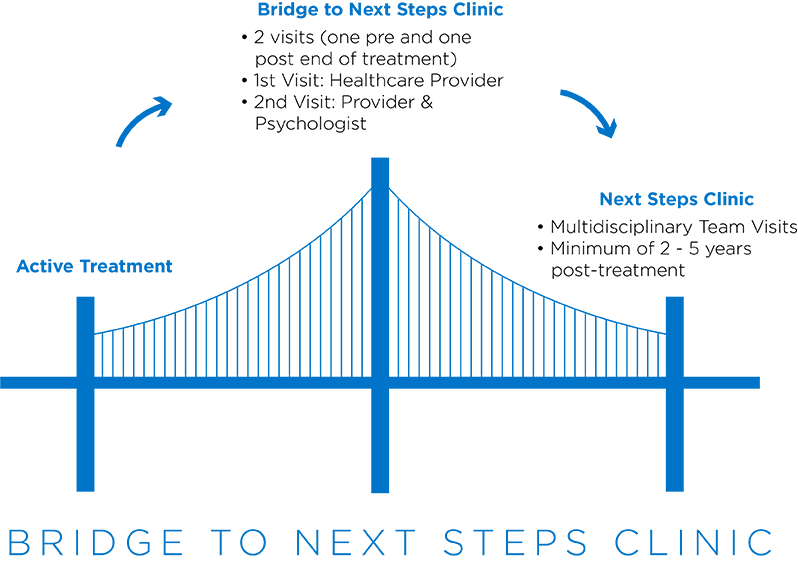Treatment
Next Steps Survivorship Program
Explore our survivorship program for children recovering from cancer.
The Next Steps Survivorship Program is made up of experts who provide evidence-based, individualized care to survivors and families. Our multidisciplinary team includes doctors, advanced practice providers, nurses, psychologists, social workers, school teachers, physical therapists, dentists, dermatologists, cardiologists, endocrinologists, dieticians and navigators — all working in partnership with you and your primary care doctor.
Our survivorship program helps patients and families to identify and monitor possible late effects, educates on ways to maintain a healthy lifestyle based on risk factors and empowers survivors to advocate for their health.





